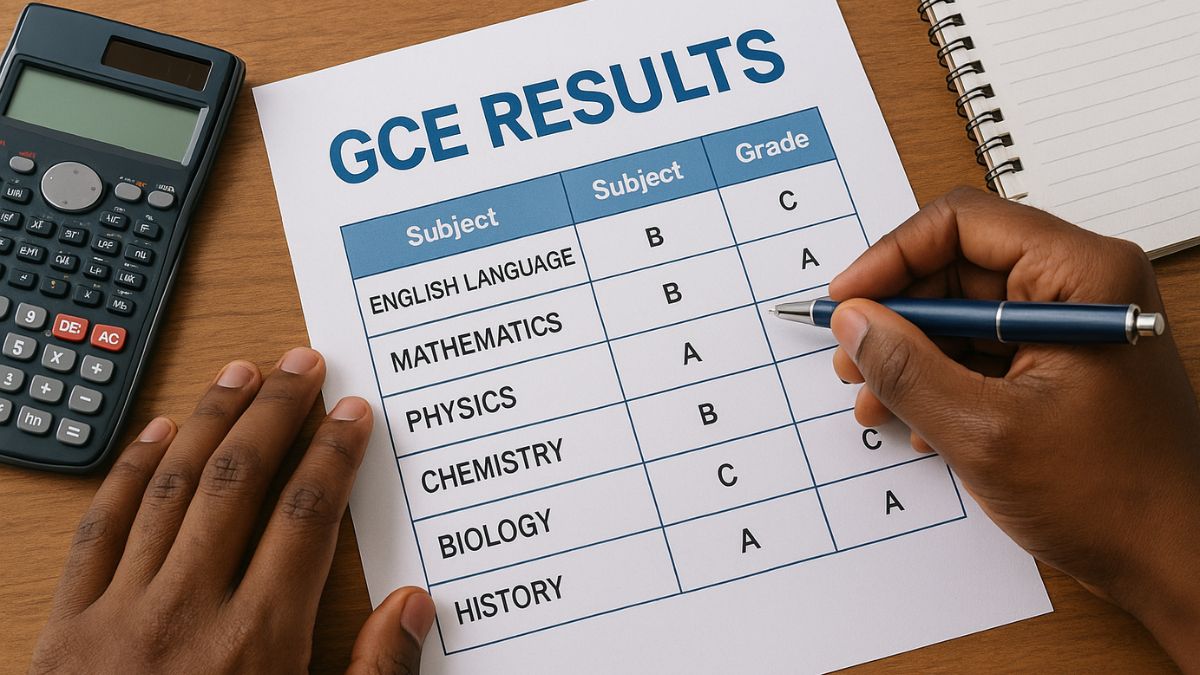The General Certificate of Education (GCE) is one of Cameroon’s cornerstone examinations, shaping students’ academic and professional trajectories across Ordinary Level (O-Level), Advanced Level (A-Level), and Technical & Vocational tracks. Instead of spotlighting a single year, it’s more insightful to examine evolving trends, emerging patterns, and sectoral dynamics across multiple years.
Understanding the Cameroon GCE Examination System
Before diving into the results, it’s important to understand the structure of the GCE system in Cameroon. The Cameroon GCE Board oversees two main types of exams: General Education (GCE O and A Levels) and Technical/Vocational Education (ITC and ATC). These exams are internationally recognized and serve as a basis for university admissions and career entry, especially within the Anglophone educational framework.
The Ordinary Level (O Level) typically marks the end of five years of secondary school education, while the Advanced Level (A Level) comes after two additional years in high school. Technical students, on the other hand, undergo specialized vocational training, and their certification reflects technical proficiency in specific fields.
Cameroon GCE Results 2025
The 2025 General Certificate of Education (GCE) results have been officially released, providing valuable insights into the academic performance of candidates across Cameroon. This section offers a comprehensive analysis of the results, including overall performance, subject-specific outcomes, regional disparities, and projections for future trends.
📊 Overall Performance Overview
The Cameroon GCE Board reported a total of 110,916 registered candidates, with 98,015 candidates actually sitting for the examinations. The success rate has increased by 14.66%, indicating a positive trend in candidate performance compared to previous years .
🧑🎓 Performance by School Type
Private institutions have generally outperformed public schools, reflecting the ongoing challenges in the public education sector, including resource limitations and infrastructural constraints.
🌍 Regional Performance Insights
Urban centers, particularly in the Centre and Littoral regions, exhibited higher success rates, attributed to better access to educational resources and facilities. In contrast, rural areas faced challenges such as limited access to quality education and examination centers.
📚 Subject-Specific Performance
Detailed analysis of subject-specific performances revealed strengths in areas such as Mathematics and Sciences, while subjects like Languages and Social Sciences showed varied results. This underscores the need for targeted interventions to address subject-specific challenges.
📉 Examination Malpractices
The GCE Board reported a decrease in examination malpractices in 2025 compared to previous years. This improvement is attributed to stricter examination protocols and increased awareness among candidates and invigilators.
🎓 Implications for Future Candidates
The 2025 GCE results underscore the importance of sustained efforts in improving educational standards across the country. Future candidates are encouraged to focus on areas of weakness, engage in continuous learning, and leverage available resources to enhance their performance.
Performance Through the Years: A Comparative Panorama
From 2019 to 2025 — Key Milestones:
| Year | Overall Pass Rate |
|---|---|
| 2019 | ~74.24% overall. O-Level: ~62.15%, A-Level: ~78.36%. Massive improvement over 2018. |
| 2023 | ~66.88% overall—down by 3.37% from 2022. |
| 2024 | ~60.80% global pass rate. O-Level: ~62.51%, A-Level: ~61.24%. camgceb.org+1 |
| 2025 | ~75.46% overall—a strong rebound. O-Level & A-Level both at ~78.56%. TVEE Intermediate: ~52.03%, TVEE Advanced: ~71.19%. |
Regional Disparities: Geography & Performance
The 2025 data offers a clear lens into uneven regional outcomes:
- Top Regions (Pass Rate):
- Centre: 66.33%
- North West: 65.06%
- West: 64.27%
- Low Performers:
- Far North: 50.49%
- South West: 52.91%
- North: 54.17%
Another 2024 comparison highlighted: Centre at ~71.5%, West ~69.7%, Adamawa ~68.95%, versus Far North’s struggle at just ~50.9%.
Why the Gaps?
- Resource Access: Textbook scarcity is rampant—one mathematics book per nine students; one science book per thirty-one, especially in rural areas. oxfordhscameroon.org
- Classroom Crowding: An estimated 44 students per teacher in some primary schools.
These systemic constraints undeniably affect exam readiness and success.
Exam Tracks: General vs Technical
2025 Breakdown:
- O-Level (General): ~78.56%
- A-Level (General): ~78.56%
- TVEE Intermediate: ~52.03% (modest gain from 2024)
- TVEE Advanced: ~71.19% (significant gain of nearly 9 percentage points)
Takeaway:
General academic tracks consistently outperform technical/vocational tracks, though notable progress is seen at the higher technical level.
Behind the Numbers: Qualitative Challenges & Shaping Forces
Systemic Limitations:
- Resource Deficit: The dearth of textbooks, digital materials, and infrastructure especially hits rural and public school students hardest.
- Security & Instability: In conflict-prone areas, especially the Anglophone regions, educational disruptions deeply affect performance and attendance.
Future Projections: What Lies Ahead?
- Support for Underperforming Regions: With such stark disparities, targeted mobilization—from textbooks to teacher development—can narrow gaps.
- Resilient Systems: Creating mechanisms to mitigate risks posed by instability or pandemics (e.g., remote learning, modular assessments).
- Expanding TVEE Success: Build on the gains in TVEE Advanced by ramping up vocational infrastructure and curriculum realignment.
Where to Check the Cameroon GCE Results 2025
There are several official and secure ways to access the Cameroon GCE Results once they are released. Here are the main methods available to students and the general public:
1. Cameroon GCE Board Official Website
The most direct and reliable source is the official website of the Cameroon GCE Board: https://camgceb.org. On the day results are published, the site typically features a clearly labeled section like “Results 2025” or “Check Your Results.” Users are required to input their candidate number, exam centre number, and examination year to view their individual results. The online platform may also provide a downloadable PDF version of the full list of results categorized by exam centres.
2. Via SMS Services
Mobile networks like MTN and Orange often collaborate with the GCE Board to provide SMS-based result checking services. Candidates can send a formatted message containing their details (e.g., GCE center number and candidate number) to a short code provided by the service. Within moments, results are sent back via text. This method is particularly useful for those with limited internet access.
3. Through Schools and Examination Centres
For school candidates, results are usually sent directly to the respective schools. Candidates can check notice boards where results are posted or request a printed result slip from the school administration. External candidates should return to the exam centres where they registered to collect their result slips and check performance lists.
4. Regional Delegations and Education Offices
The GCE Board also dispatches printed copies of the results to regional and divisional education delegations. Candidates in rural or remote areas may find this option more accessible than traveling to exam centres or relying on digital platforms.
What Comes After the Cameroon GCE Results?
Receiving your GCE results marks the end of one academic chapter and the beginning of another. Depending on your outcome, there are several options and next steps to consider.
For Ordinary Level (O Level) Candidates:
Students who pass the O Level typically proceed to high school for the Advanced Level. Based on the subjects passed and grades obtained, candidates may be streamed into Science, Arts, Commercial, or Technical pathways. It’s important to consult with academic advisors or school guidance counselors to choose a track that aligns with your strengths and career aspirations.
Some students may also explore vocational training programs or professional certifications if they prefer hands-on careers over the traditional academic route. For those who didn’t pass, there is the option to resit the exam the following year or consider technical education paths.
For Advanced Level (A Level) Candidates:
Passing the A Level opens up several higher education opportunities. Students can apply to universities both within Cameroon and abroad, especially in Commonwealth countries where the GCE is recognized. The University of Buea, University of Bamenda, and several professional institutes offer degree and diploma programs based on A Level subject combinations.
Additionally, technical candidates with ATC can seek admission into professional schools, engineering institutes, or pursue specialized industry-based training. If results fall short of entry requirements, students can choose to resit specific subjects or apply for foundation programs that offer a stepping stone to degree courses.
What If the Results Are Unsatisfactory?
Disappointment with exam results is a common experience, but it doesn’t have to mean the end of the road. The GCE Board allows candidates to apply for a remark or script review in cases where they strongly believe there’s been an error in grading. This process involves submitting a formal request and paying a fee. Final remark results are typically communicated a few weeks after the request is made.
Moreover, candidates are encouraged to evaluate alternative paths if university or further education seems unattainable immediately. These include enrolling in TVET (Technical and Vocational Education and Training) programs, online courses, internships, or even entrepreneurship.
How to Collect Your GCE Certificates
It’s crucial to understand that result slips issued shortly after the exams are not the official certificates. The GCE Board issues official certificates about six months after the release of results. These certificates are required for university admission, job applications, and international academic equivalence.
To collect your certificate, you must:
- Present a valid national ID card or passport.
- Provide proof of registration (receipt or form).
- Collect the certificate at the exam centre or regional GCE office, depending on your location.
Failure to collect your certificate on time can lead to delays in academic processing or job placement, so candidates should follow up as soon as notifications are made.
Final Thoughts
From peaks to troughs, Cameroon’s GCE landscape is a tale of resilience, challenges, and resilience.
Strategic investment and educational equity can transform volatility into progress. By bridging disparities, enhancing support structures, and learning from these fluctuations, Cameroon can turn GCE outcomes into a beacon of opportunity.
The release of the Cameroon GCE Results 2025 is a defining moment for thousands of students. Whether you passed with distinction, achieved a satisfactory grade, or faced a setback, it’s important to remember that this is just one step in a much longer journey. Cameroon’s educational system offers many pathways to success, and your results should guide—rather than limit—your next decision.
Stay informed by checking only official sources, keep your documents safe, and seek guidance when necessary. Most importantly, reflect on your achievements and build forward with confidence. The GCE results are not just an end—they’re the beginning of a world of opportunities.

